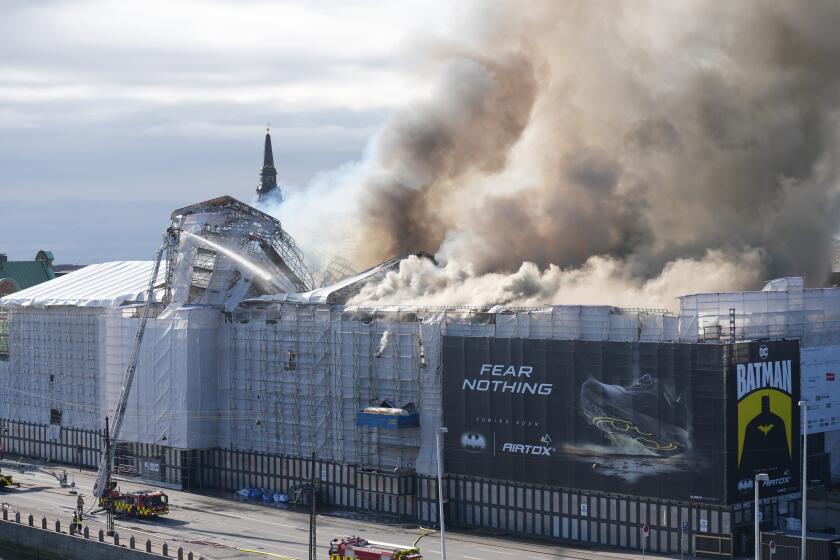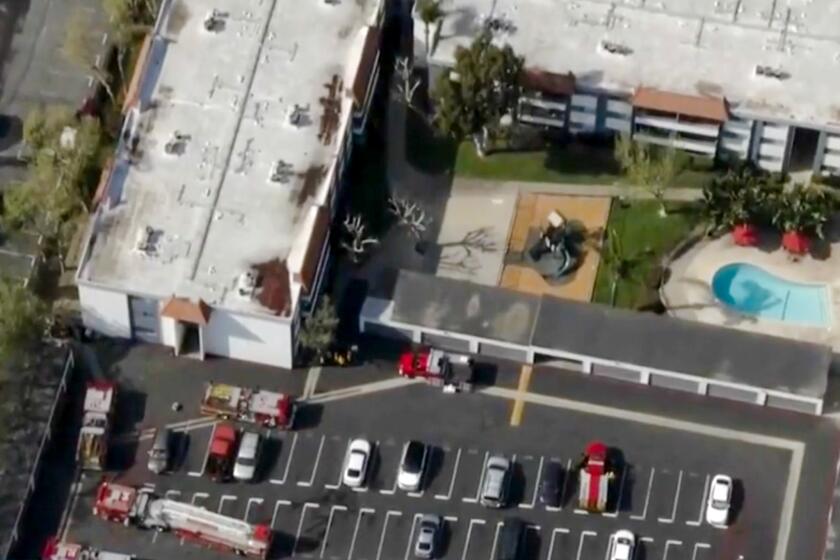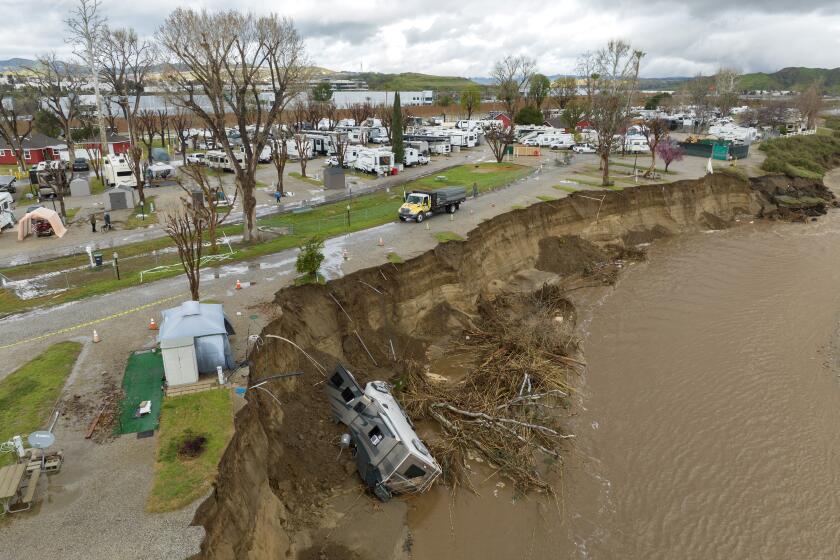A new bakery renews old hope
Eight years after Homeboy Bakery burned down, the business that gave former gang members a job and a chance to break from their past will reopen Tuesday in more spacious quarters near the Civic Center in downtown Los Angeles.
Bakers were cleaning pans and counter tops Friday as they prepared to welcome customers this week.
“It’s going to do a lot of good,” said Luis Rivera, 39.
The bakery is only one part of Homeboy Industries, a nonprofit rehabilitation center for former gang members and at-risk youths that was founded nearly 20 years ago by Father Gregory Boyle. The center will be headquartered in the new facility.
The structure “houses what we’ve become, which is not just a local community center but a place that serves the entire county of Los Angeles,” Boyle said Sunday. “There’s not a ZIP Code that hasn’t walked through our doors to seek help.”
Determining what the facility would include, where it would be and how to raise the money to pay for it have been the main problems that Boyle has faced, although operations other than the bakery have continued elsewhere since the 1999 fire.
Mona Hobson, Homeboy Industries’ director of development, estimates that it will take about $12.5 million, most of which has been raised through donations from foundations, individuals and corporations.
With large windows, orange-yellow hues and a catchy Homeboy logo out front, the two-story building houses the majority of the organization’s businesses, including a cafe and merchandising, landscaping and cleanup operations. Its silk-screening business will remain on Santa Fe Avenue near Olympic Boulevard. Homeboy Industries also offers support services such as counseling, career help, tattoo removal and educational classes.
Shortly after the fire, Boyle bought land across the street from the Chinatown Gold Line Metro Station and near Union Station because it was not in territory claimed by any gang and was more accessible than the site in Boyle Heights.
“It’s announcing a message in the middle of the city: ‘What if we invested in people rather than try to incarcerate our way out of this problem?’ ” Boyle said.
Initially aimed at helping members of eight Boyle Heights gangs, Homeboy Industries now reaches out to 600 gangs and offers services to about 1,000 people from 45 ZIP Codes each month.
Homeboy Industries employs about 250 former gang members and at-risk youths.
There was an excited buzz and frenetic activity in the building Friday as people prepared for the opening and waited to see Father Greg, or “Gee” as they call him.
“Tuesday -- that’s what everybody’s talking about,” said Eric Bennett, 29, retail and sales manager, who was going through store paperwork while holding his daughter on his lap. “Tuesday, Tuesday, Tuesday.”
Near Bennett was a roomful of boxes, T-shirts, sweat shirts and other merchandise, waiting to be sorted and put up on the walls for sale. Next door, workers in the Homegirl Cafe were cleaning the kitchen and setting up the almost 90-seat-capacity room, about three times the size of their former location.
“This is big, this is state of the art,” said Patricia Zárate, 49, cafe founder and chef. “It has everything you could dream of. It cuts corners on nothing. There’s a lot of time, passion, money, hard work and hopes invested into this place. It is only our job to make it work.”
The cafe, which also will offer catering, won’t be open until Oct. 23, she said.
“I want to start already,” said Marissa Castillo, 35, a worker in the restaurant.
Along with a small group of other former gang members, Rivera has prepared for the last couple years, training at a bakery in South Gate and taking professional baking classes at Los Angeles Trade Tech College. He will help train about 20 recruits.
“This is a new beginning,” Rivera said. “We’ve seen this from dirt and rubble. This is our future.”
For Boyle, who has devoted his life to helping gang members, the building north of Olvera Street is close to the original heart of Los Angeles.
“In the end, it’s never about buildings anyway,” Boyle said. “It’s about watching people become the truth of who they are.”
--
More to Read
Start your day right
Sign up for Essential California for news, features and recommendations from the L.A. Times and beyond in your inbox six days a week.
You may occasionally receive promotional content from the Los Angeles Times.






